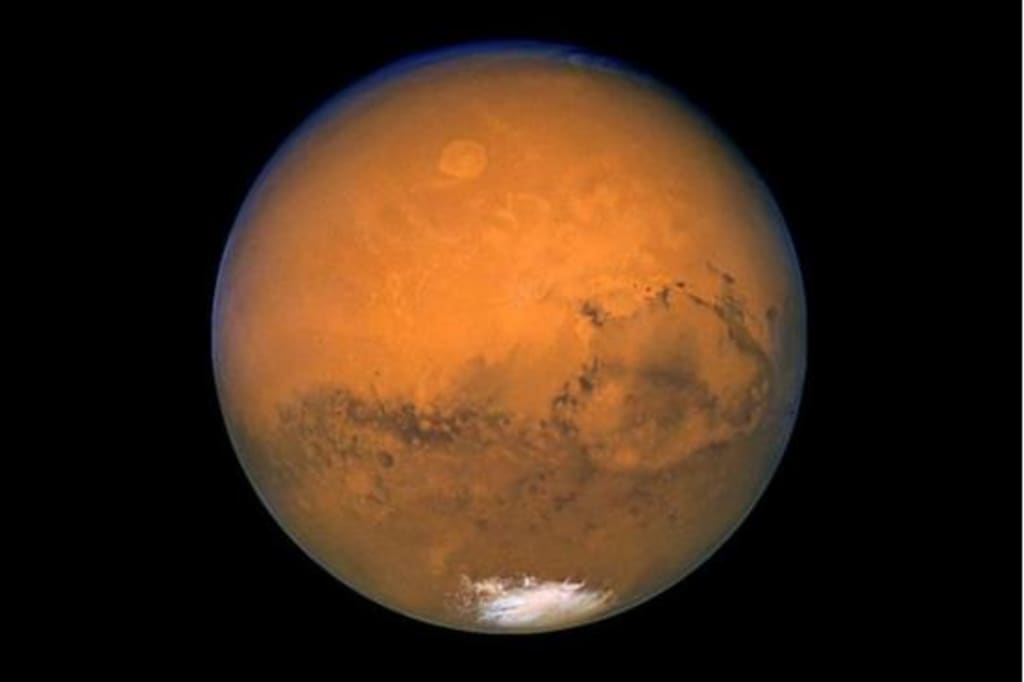Organic salts found on Mars, say NASA scientists
Organic salts discovered on Mars

After China's Zhu Rong successfully landed on the surface of Mars and joined the current round of Mars exploration, many people are looking forward to the good news of "life on Mars".
According to reports, some time ago, NASA scientists sent back photos from the rover, indicating that organic salts were suspected to have been found on Mars, and that these organic salts could be related to ancient life on Mars. Thus, it seems that mankind is getting closer to the truth about life on Mars, however, is it really so?
Organic salts have been found on Mars
What are organic salts? Simply put, it is a salt produced by the proper neutralisation of organic acids and alkaloids. On Earth, many organisms are able to use organic salts, as a source of energy.
NASA scientists believe that the organic salts on Mars may be related to the geological movements of Mars, in short, they were formed during the evolution of Mars and are part of the chemical residue on Mars.
Does this not seem to have anything to do with life on Mars? However, researchers believe that the discovery of Martian organic salts can also be seen as evidence that Mars is the presence of ancient life, let's say that it belongs to the activity left behind by early life on Mars, such as Martian microbes.
Through research, it has been suggested that life may have existed on Mars up to 3 billion years ago, as organic matter has also been found in rock samples from Mars 3 billion years ago.
However, if humans want to completely figure out life on Mars, unless the rover finds relatively complex biological fossils on Mars, they may really need to wait until a decade later, after NASA has returned from sampling Mars, before the answer may be revealed through research in the laboratory.
Does life really exist on Mars?
This is a question that cannot yet be answered, but the prevailing view, based on available scientific research, is that life has existed on Mars, albeit in a very short habitable period.
After NASA's Curiosity rover landed on Mars, scientists discovered that organic molecules existed in the rock formations of Mars, and that the organic molecules made on Mars were at least 4 billion years old in terms of time. At least 4 billion years ago, Mars was the habitable period.
You know, in the solar system, although the Earth is located in the best location of the habitable zone, but the early days of the Earth is also the fate of the ill-fated, from 4.6 billion years ago, the Earth has experienced at least 500-600 million years ago "dark period", not to mention the life, and even look more terrible than Venus.
However, the presence of organic molecules on Mars means that, in contrast to the early Earth, Mars was not so bad, and life existed on Mars at least 4 billion years ago, and to this day, the source of the high concentration of methane in the atmosphere of Mars is unanswerable, which makes many people suspect that there may be life on the surface of Mars even today.
Some of you may say that human probes have been landing on Mars for over 40 years, and if life does exist on Mars, why have human probes never found direct evidence of it? This is because life on Mars is supposed to be a group of microorganisms that are not visible to the naked eye, and naturally it would be very difficult to confirm their existence.
Mars more than 3 billion years ago was rich in liquid water
In 2018, scientists discovered through data sent back by the rover that there are surprisingly multiple lakes at the south pole of Mars, and in them, there is a surprisingly large amount of liquid water.
At the same time, studies of Mars over the past few billion years have also revealed that the planet once had a warm climate and a considerable abundance of liquid water.
It is believed that the liquid water on Mars may not have disappeared in the true sense of the word, but some of it escaped into space, while others were locked up under the surface of the planet.
Of course, this discovery has also got scientists thinking: if there is still living life on Mars, could human intervention lead to the destruction of the Martian ecosystem, and then send the survivors of life on Mars, because of humans, down the road to extinction?
There is no denying that this is a problem, and at the same time, if life on Mars is indeed found in the future, we need to consider whether they will pose a threat to humans - after all, humans are meant to migrate to Mars in the future, and until then, we need to make all our plans foolproof.
Musk believes that if humans don't want to be left to fend for themselves on Earth, they need to find a way to leave it and then make themselves into a trans-planetary species. Apparently, many researchers today agree with Musk's idea that Earth is just a "resting place" for humans, but can humans really leave Earth and go to another planet? What do you think?
About the Creator
Vicky
The world is so wonderful, let's get to know the world together!
Enjoyed the story? Support the Creator.
Subscribe for free to receive all their stories in your feed. You could also pledge your support or give them a one-off tip, letting them know you appreciate their work.






Comments
There are no comments for this story
Be the first to respond and start the conversation.